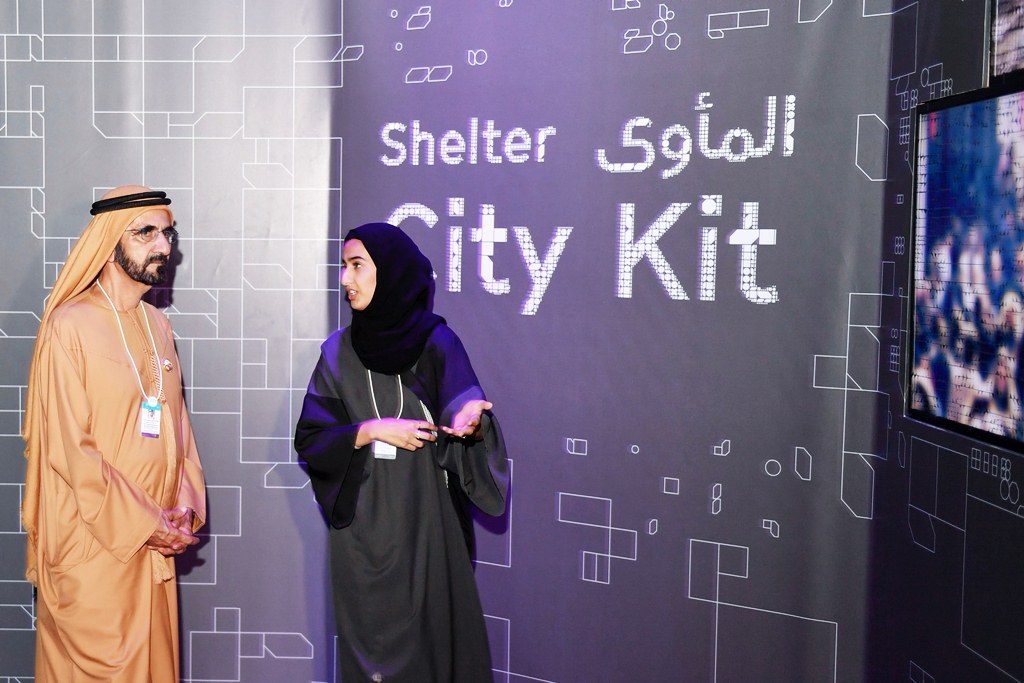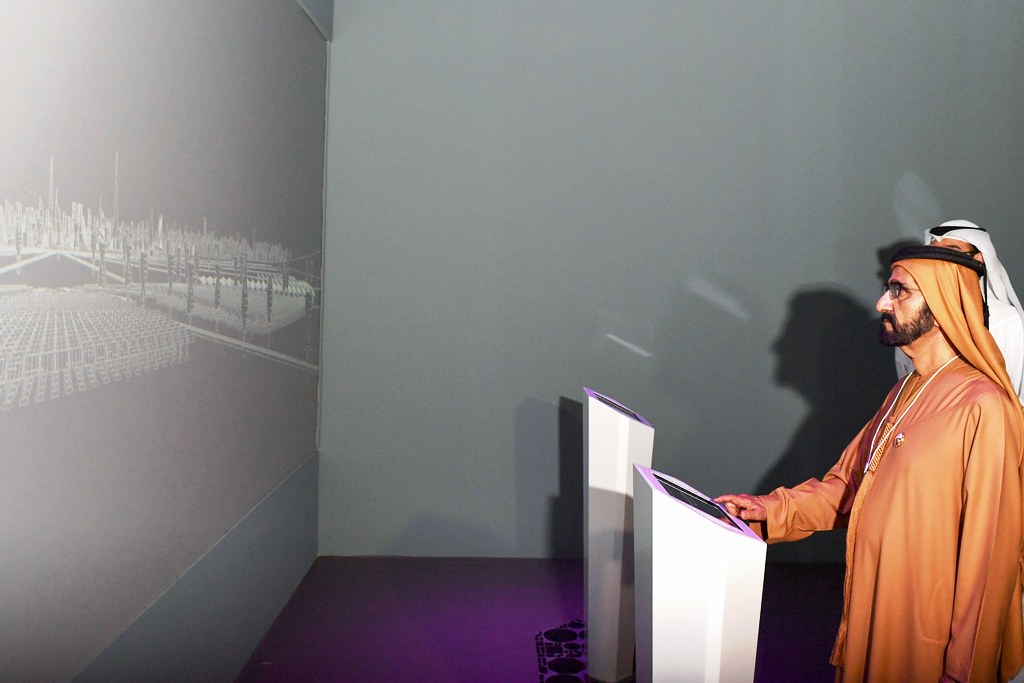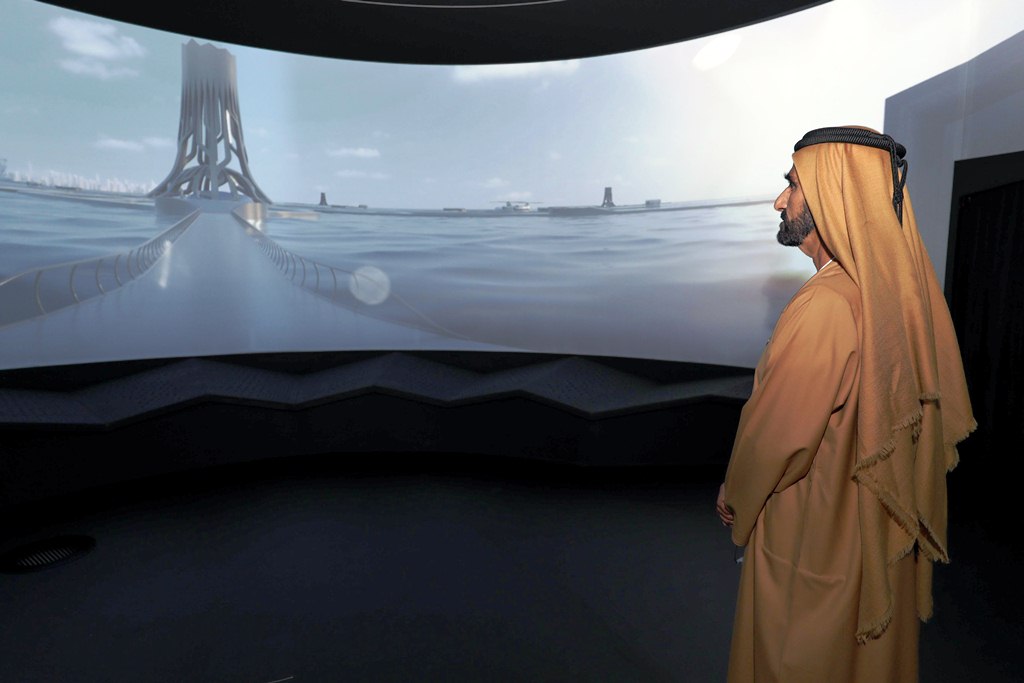His Highness Sheikh Mohammed bin Rashid Al Maktoum, Vice President and Prime Minister of the UAE and Ruler of Dubai, inaugurated the Museum of the Future at the fifth annual World Government Summit, taking place in Dubai’s Madinat Jumeirah on February 12-14, 2017.
The Museum of the Future – organized by the Dubai Future Foundation – Proposes three new bold solutions to climate change, unveiling extraordinary approaches of how countries can adapt to climate change and lead the future. It underlines the importance of adapting to the future implications of climate change.
His Highness Sheikh Mohammed bin Rashid Al Maktoum, Vice President and Prime Minister of the UAE and Ruler of Dubai, said: “The UAE’s strategy for building the inspires people to innovate and come up with solutions for the future.”
With that in mind, the Museum of the Future will take advantage of its participation in the World Government Summit to propose new and futuristic ways to overcome the challenges of the future, and to turn them into opportunities that world governments can use to build a better tomorrow for coming generations.

He added: “Leaders, decision makers, and experts around the world are investing time, effort, and resources to find sustainable solutions for climate change challenges; these endeavors help us provide food and water, and build sustainable cities. Climate change and food security require us all to work together and propose solutions that affect positive change and benefit all economic and social sectors.”
He continued, “The United Arab Emirates has always put the visions towards facing challenges that affect society. The Museum of the Future offers visitors the opportunity to explore ideas and best practices that serve to build a future that resonates with our leaders’ directives and vision, and that cements the UAE’s position as a global hub for forecasting and planning for the future.”
He added: “To that end, we take the opportunity today, through the influential global platform that is the World Government Summit, to share our vision for the future, and our proposed solutions to face climate change, all the while exploring any and all possible opportunities that may lie therein. The UAE has led the charge in proactively planning for the future, anticipating the challenges that may arise, and proposing solutions for them.”
He noted that the Museum of the Future will be a permanent fixture in Dubai, exhibiting the inventions and technologies of the future. It is an ideal platform that embodies bold ideas and develop pragmatic solutions, He asserted, as well an incubator for innovation.


“The Museum of the Future is a global platform where top-tier experts can identify the most prominent scientific and technological trends of the future,” He said. “It is a catalyst for future forecasting and study efforts, and plays a pivotal role in setting policies and strategies that allow the world’s governments to benefit from the technologies of the future and their potential.”
Food, Water, and Sustainable Cities
The Museum of the Future will use the World Government Summit platform to draw attention to three main challenges: water supply, food security, and self-sufficient cities. Studies reveal that the UAE procures 80% of its drinking water through desalination, with demand for drinking water constantly increasing. Meanwhile, the global supply of potable water is projected to fall 40% short of global demand by 2030.
Moreover, studies show that the UAE imports 85% of its food, costing the country 15% of its GDP. The Ministry of Economy predicts the cost of importing food to quadruple to 60% of GDP by 2025, unless local, sustainable food sources are provided.
The Museum’s Future Outlook – The Future of Food
The world is going to need to produce 70% more calories than we do today to provide food for the population, according to studies by the Food and Agriculture Organization (FAO). In light of these findings, the Museum of the Future offers new concepts for farms that use cutting-edge technologies to produce food at home. These AutoFarms will be connected to FoodNet, an artificially intelligent social network for food that serves entire neighborhoods. The farms learn people’s personal needs and preferences and grow food accordingly. AutoFarms create personalized predictive menus, then harvest the ingredients, prepare them, and deliver them right to people’s doorstep. AutoFarms are integrated into the local food network, allowing them to synchronize data with the wider market, and directly address health needs and solve city-wide nutrition problems. This produces food that is 100 times healthier and more nutritious, using 99% less water and electricity.
The Future of Water
The Museum imagines living organic fresh water factories made of genetically engineered jellyfish. It takes visitors on an underwater tour to introduce them to this innovative solution for the shortcomings of desalination. Jellyfish is one of nature’s most absorptive living organisms. Meanwhile, mangrove roots are one of nature’s best biological desalinators. With that in mind, giant 350-meter-wide jellyfish could be created by crossing the genes of jellyfish and mangrove trees to produce living freshwater factories that could serve an entire city. This can potentially become a major industry for Dubai, exporting these bio-desalination plants across the globe, making fresh water accessible to everyone through a mix of genetics and biomimicry.
The Future of Cities
Rising sea levels are projected to displace more than 375 million people while global temperatures are set to rise by an average of 2 degrees Centigrade. The Museum presented its City Kit – a “self-building building” solution that uses biotechnology and robotics to construct 100% self-sufficient cities in a matter of weeks. The invention can also produce electricity, grow crops, drain flooded streets, repair crumbling buildings, and build sustainable infrastructure.
